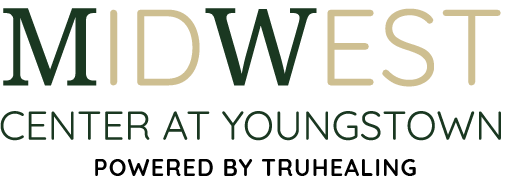After getting sober through an addiction treatment program, the foremost concern is addiction relapse prevention. While it is perfectly normal to go through periods of abstinence and relapse, the goal is to minimize the recurrence of this cycle so that you can eventually achieve lasting recovery. Therefore, one of the best ways of preventing addiction relapse is through a quality addiction aftercare program.
At Midwest Center at Youngstown, we understand how critical relapse prevention support is to your recovery. Our addiction aftercare programs provide you with the tools, resources, and guidance you need as you navigate your new sober lifestyle. Give us a call today at 844.544.0502 to learn more about how we can help you prevent addiction relapse after treatment.
Addiction recovery does not typically follow a straight, simple path. Instead, there are usually detours and backtracking as you encounter temptations and triggers. Relapse is a very likely occurrence, but you do not have to feel like you have failed at recovery. After relapsing, the most important thing to do is to tap into your resources and get back on track.
Addiction Relapse Prevention Strategies
The following are some of the top strategies for addiction relapse prevention:
Enrolling in an addiction aftercare program
Addiction aftercare and alumni programs are specifically designed to help you sustain your recovery. Addiction treatment centers realize that cutting you off after completing treatments is not conducive to lasting sobriety. Most people need additional support and guidance to navigate everyday life situations that can trigger a relapse.
Learning about your addiction triggers
Knowledge is power, and learning about the people, places, and situations that trigger you to want to use drugs or alcohol again can empower you to respond differently. Once you know what sets you off, you will no longer be caught off guard and reach for a pill or bottle to cope with difficult situations.
Developing a relapse prevention plan
You can do this on your own or with the help of a therapist. Planning for what to do if you run into temptations or triggers can give you a leg up on your recovery. Consider your triggers and decide how you will manage them in the future. You can find ways to avoid or eliminate your triggers or develop healthier ways to respond to them when they are unavoidable. Perhaps you can reach out to a sober buddy, attend a sober group meeting, call your addiction counselor, or take any other action that can help you pull through without succumbing to relapse.
Learning stress reduction techniques
One of the most powerful ways to support a healthy recovery is by learning how to reduce your stress. Although stress is a fact of life and cannot be eliminated entirely, you can find ways to prevent it from harming your recovery efforts. Find methods that resonate most with you, such as yoga, breathing techniques, meditation, or guided relaxation exercises.
Developing healthy lifestyle habits
Addiction changes your brain and impacts your physical and mental health. Healing your mind, body, and spirit through healthy lifestyle habits can strengthen your resilience to stress and relapse. It will take time to regain your overall health and well-being, but implementing tiny habits each day will help you get there.
Joining support groups
Building your support system is an effective way to help maintain your recovery and prevent relapse. Support groups are available in various forms, such as:
- Alcohol Anonymous groups
- 12-step programs
- Peer support groups
- Sober social groups
Try out several different types of support groups to find those that work best for you.
Midwest Center at Youngstown: Aftercare Support for Preventing Addiction Relapse
After all the hard work of getting through withdrawal, resisting cravings, and attending therapy sessions, you will want to protect your sobriety with an aftercare program. With our evidence-based aftercare programs, Midwest Center at Youngstown can help you prevent addiction relapse after treatment. Call us today at 844.544.0502 to learn more about how we can help support you for the long term.

